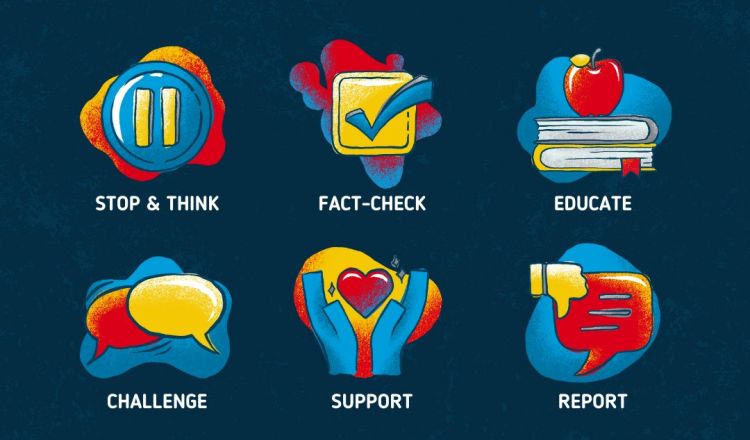Hate speech online can lead to cruelty & violence in real life.... How to deal with it?
2022-05-22 07:12

Hate speech is an issue prevalent in all societies, whether offline or online. It can sometimes be difficult to assess when a comment is meant as hate speech - especially when occurring in the virtual world - or it can simply feel overwhelming trying to deal with obvious hateful content.
However, there are many ways you can take a stand, even if you are not personally the victim of hate speech - and you can make a difference. The following tips may be helpful.
![]()
Pause
Restrain from making any hateful comments yourself and/or relaying such content. Whether online or offline, we can all act responsibly and contribute to stop the spread of hate and misinformation. Check out the United Nations #PledgetoPause campaign to find out why it’s important to take a moment to pause before you share content and how to do it responsibly online, whether you’re forwarding a message, retweeting a story or watching a video in your feed.
![]()
Fact-check
In the digital world, it’s common to come across misinformation and harmful content, but it’s generally also easy to verify whether the content you come across is reliable. Make sure you spot false and biased information, including hate speech propaganda, checking the content origin with the help of search engines, fact-checking tools and other reliable sources. You can also download images and run them through image search tools to find out when they appeared first.
![]()
React
Whenever possible, do not remain silent, even when others are targeted: speak up calmly but firmly against hate speech and call it out to make clear that you do not agree with the content of the statement. When relevant, you can refute misinformation with facts, providing reliable sources to back up your argument.
![]()
Challenge
One way to tackle hate speech is to spread your own counter-speech to make sure hate is not the dominant narrative. Feel free to undermine hateful content with positive messages that spread tolerance, equality and truth in defense of those being targeted by hate.
![]()
Support
Taking a public stand for and extending solidarity to people who are targets of hate speech can help fight hate speech and demonstrate that rejecting hate is the responsibility of each one of us.
![]()
Report
Most digital platforms and online communities have rules to ensure users' discussions remain respectful and will let you easily report messages of hate to administrators or moderators. Make sure you check out social media platforms guidelines and tips that aim to protect users from harassment and hate speech. For most serious cases - that may constitute incitement to violence, harassment and/or threat prohibited by law - you can choose to notify organizations fighting hate speech and/or file a complaint with the police authorities (or the public prosecutor’s office). Some countries have implemented nation-wide online tools to make reporting hate speech easier.
![]()
Educate
You can help raise awareness on the issue of hate speech - online or offline - as simply as engaging with your family and friends in conversations about how hateful content can harm societies, advocating for responsible behaviour and sharing public campaigns and educational resources.
![]()
Commit
Consider joining a NGO or another civil society initiative that works towards addressing the issue of hate speech in your community.
Words can be weapons.
— United Nations (@UN) May 20, 2022
Hate speech online can lead to cruelty & violence in real life.
Get tips for how you can say #NoToHate: https://t.co/7KugkNkHMJ pic.twitter.com/0VAKC30FIM









